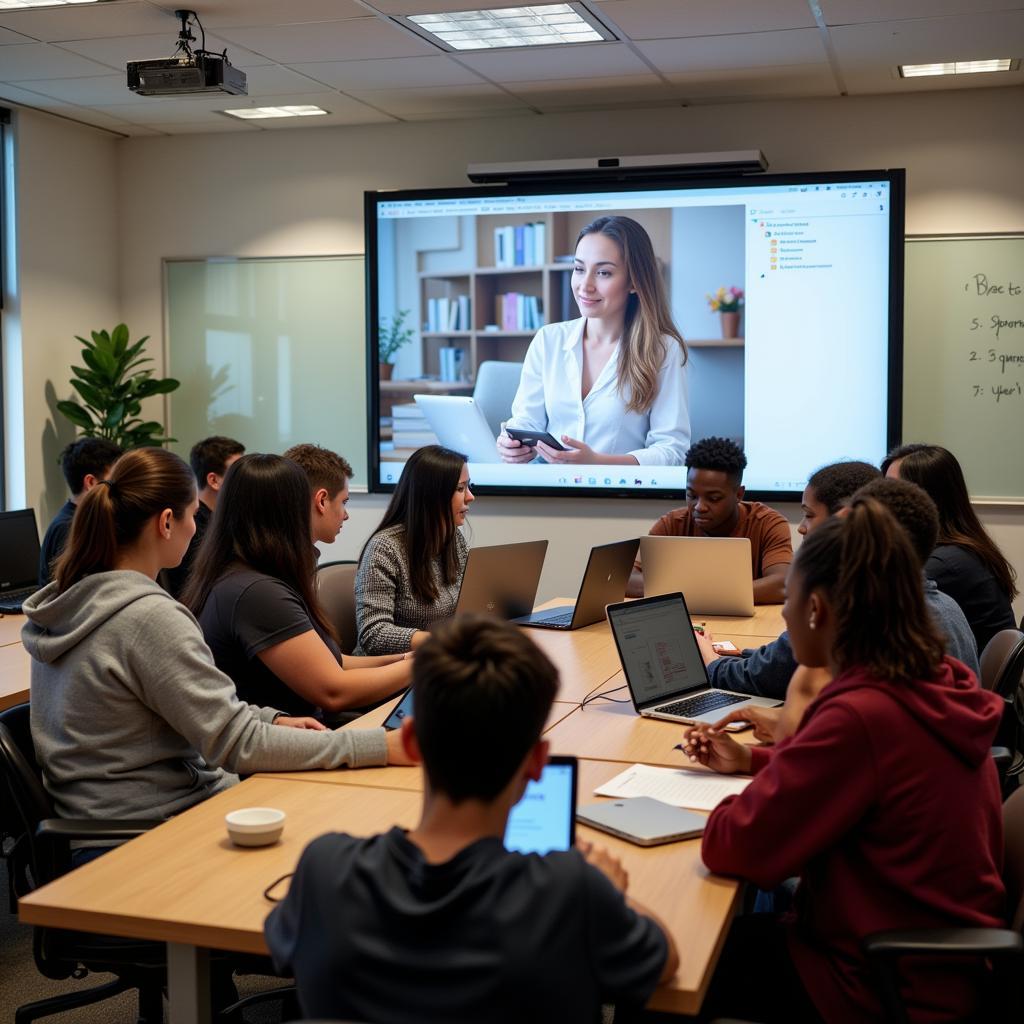The topic of online education and lifelong learning has become increasingly prevalent in IELTS Writing Task 2 examinations, particularly since 2020. Based on analysis of past papers and current trends, this topic appears in approximately 15% of recent tests, often focusing on the advantages and disadvantages of digital learning platforms or their influence on traditional education systems.
Let’s examine a recent IELTS question that exemplifies this theme:
Some people believe that online education has revolutionized the way people approach lifelong learning. To what extent do you agree or disagree with this statement? Provide reasons and relevant examples to support your answer.
Lifelong learning and continuous education has evolved significantly in the digital age, making this topic particularly relevant for IELTS candidates.

Analysis of the Question
- Topic: Impact of online education on lifelong learning
- Task: Agree/Disagree essay
- Key areas to address:
- How online education has changed learning approaches
- Impact on accessibility and flexibility of education
- Effectiveness compared to traditional learning methods
Sample Essay 1 (Band 8.5)
The digital revolution has fundamentally transformed education, and I strongly agree that online learning has revolutionized lifelong learning opportunities. This essay will explore how digital platforms have dramatically altered educational accessibility and learning methodologies.
First and foremost, online education has demolished traditional barriers to learning. Benefits of online education for working adults are particularly evident in the flexibility it offers. Professionals can now pursue advanced degrees or acquire new skills while maintaining their careers, accessing course materials and attending virtual lectures at their convenience. This flexibility has made continuous education a realistic possibility for many who previously found it impractical.
Furthermore, the democratization of knowledge through online platforms has made learning more accessible and affordable. Premium educational content from prestigious institutions is now available globally through MOOCs and digital learning platforms, often at a fraction of traditional costs. This has enabled learners from developing nations to access world-class education, fostering global knowledge exchange and professional development.
How digital literacy affects job opportunities is increasingly evident in today’s workforce. Online education has enabled rapid skill adaptation in response to evolving industry demands. Learners can quickly acquire new competencies through specialized online courses, maintaining their professional relevance in a fast-changing job market.
However, the effectiveness of online learning depends significantly on self-discipline and digital literacy. Successful online learners must develop strong time management skills and maintain consistent motivation without traditional classroom structure. Additionally, practical skills in certain fields may still require hands-on experience to complement online learning.
In conclusion, online education has indeed revolutionized lifelong learning by removing geographical and temporal barriers, democratizing access to knowledge, and enabling continuous professional development. While challenges exist, the transformative impact of digital learning platforms on education accessibility and flexibility is undeniable.
Sample Essay 2 (Band 6.5)
I agree that online education has changed how people learn throughout their lives. This essay will discuss the main reasons for this change.
The biggest advantage of online education is that it is convenient. People can study anytime and anywhere using their computers or phones. For example, working people can take courses after work or during lunch breaks. This makes it easier for them to keep learning new things.
Also, online education offers many choices. Students can choose from different subjects and levels. Many famous universities now provide online courses that are cheaper than regular classes. This helps more people get education who couldn’t before because of money or location problems.
However, online learning has some problems too. Some students find it hard to stay motivated without teachers watching them. Internet connection problems can also make studying difficult. Additionally, some subjects need practical experience which is hard to get online.
How to create a positive learning environment at home is important for online students. They need a quiet place and good computer setup. This helps them focus better on their studies.
In conclusion, I think online education has made big changes in lifelong learning. Although there are some challenges, the benefits of convenience and choice make it a good way for people to keep learning throughout their lives.
Vocabulary Analysis
- revolutionize (v) /ˌrevəˈluːʃənaɪz/ – to change something completely and fundamentally
- democratization (n) /dɪˌmɒkrətaɪˈzeɪʃən/ – the action of making something accessible to everyone
- prestigious (adj) /preˈstɪdʒəs/ – inspiring respect and admiration
- temporal (adj) /ˈtempərəl/ – relating to time
- competencies (n) /ˈkɒmpɪtənsiz/ – skills or abilities
- conducive (adj) /kənˈdjuːsɪv/ – making a certain situation or outcome likely or possible
In conclusion, this topic remains highly relevant for IELTS candidates. For practice, try writing your own essay addressing how online education might evolve in the next decade, or discuss the potential drawbacks of over-reliance on digital learning platforms. Share your practice essays in the comments for feedback and discussion.